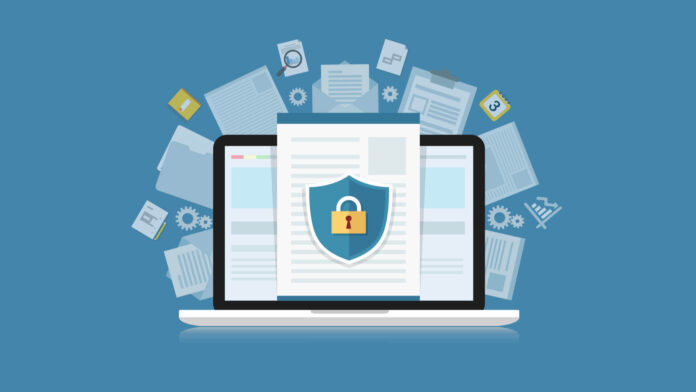In an age of advanced digital communication, faxing may seem like an outdated method of transmitting information. However, when it comes to sensitive documents, faxing remains a popular choice due to its reliability and security features.
Confidentiality plays a crucial role in faxing sensitive documents, ensuring that the information is protected from unauthorized access, interception, or misuse. What must users know when faxing sensitive documents? What measures can they use to safeguard this information?
Why is Confidentiality Critical?
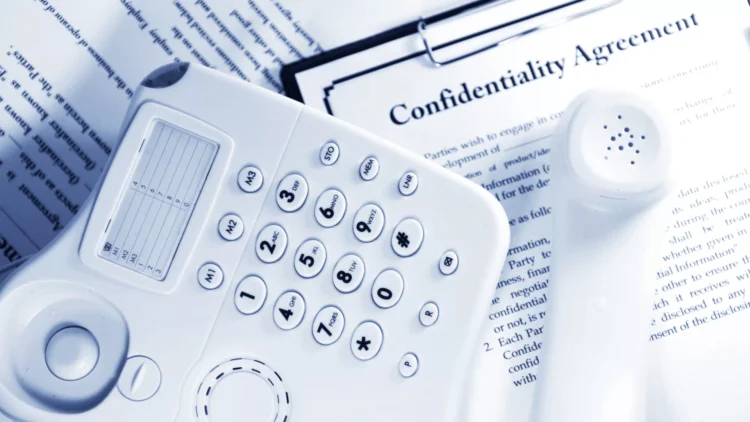
There are several reasons why confidentiality is important when faxing sensitive documents. Many documents contain personal information, such as Social Security numbers, credit card numbers, and medical records. This information can be used to commit identity theft or other crimes.
Certain documents contain trade secrets or other proprietary information that could be used by competitors to gain an unfair advantage, and some documents may contain information that is simply embarrassing or harmful if it were to be made public. Senders and recipients must safeguard this information when faxing the documents to ensure the wrong eyes won’t see it.
Security Risks of Faxing Sensitive Documents
Despite the rise of email and other digital communication methods, faxing sensitive documents remains relevant due to its inherent security features. However, it is essential to recognize the potential risks involved. Fax machines, especially those connected to phone lines, can be susceptible to interception by unauthorized individuals. This interception can occur during the transmission process or when the fax is stored in memory.
Conventional machines often store documents, which means an unauthorized person might come across sensitive information either intentionally or unintentionally. Furthermore, the wrong fax number or a misdialed number can lead to confidential information being inadvertently shared with unintended recipients. Therefore, understanding the risks involved highlights the need for implementing confidentiality measures when faxing sensitive documents. Visit mfax.io for more information about these risks.
Protection Against Unauthorized Access
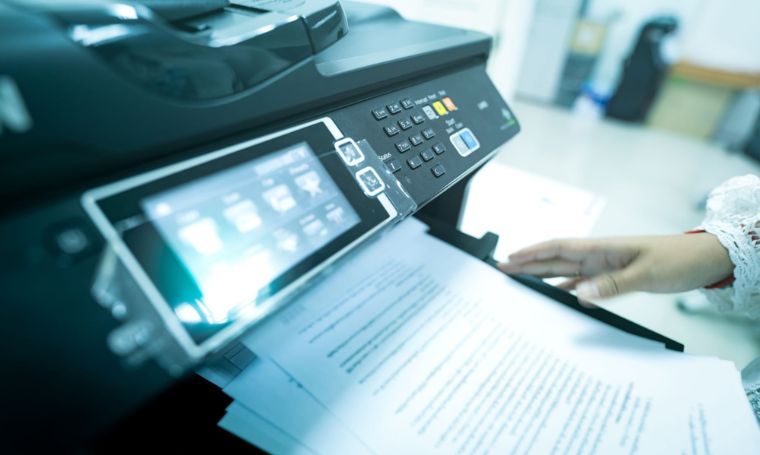
Confidentiality in faxing is vital to protect sensitive information from unauthorized access above and beyond that of someone coming across a document stored in a physical fax machine. Encrypting the data before transmission adds an extra layer of security, making it difficult for unauthorized individuals to interpret the content.
Password-protecting the fax machine ensures that only authorized personnel can access the received faxes. Additionally, using dedicated phone lines for faxing prevents the accidental sharing of information with unrelated parties. Implementing strict access controls and limiting the number of individuals with access to faxed documents can significantly reduce the risk of unauthorized access.
Preventing Data Breaches
Data breaches must be prevented when faxing sensitive information. Faxing these documents requires attention to detail to ensure that the correct recipient receives the information. Verifying the recipient’s fax number and double-checking the details before sending can minimize the chances of misdirected faxes.
Organizations should also establish clear procedures for handling sensitive documents, including training employees on proper faxing protocols and ensuring the secure disposal of received faxes. By minimizing human errors and following strict protocols, the likelihood of data breaches can be significantly reduced.
Legal and Ethical Considerations
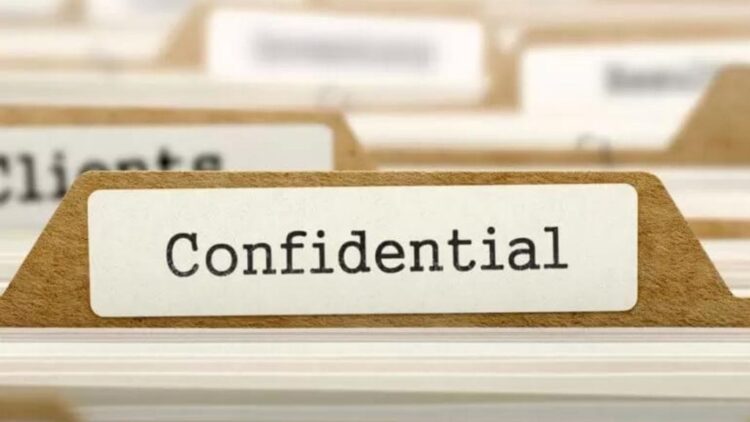
Maintaining confidentiality in faxing sensitive documents is not only a matter of best practices but also a legal and ethical obligation. Depending on the jurisdiction, certain industries have specific regulations governing the handling of confidential information, such as the healthcare, legal, and financial sectors. Violating these regulations can lead to severe legal consequences and reputational damage.
Moreover, organizations must consider the ethical implications of mishandling sensitive information. Clients, customers, and business partners expect their confidential information to be treated with the utmost care and respect. Failure to ensure confidentiality can erode trust and damage relationships, resulting in negative consequences for individuals and organizations alike.
What Steps Can a Business Take to Secure Faxes Sent Digitally?
There are many steps that businesses can take to protect the confidentiality of sensitive documents when faxing them. It is important to use a secure fax machine. Secure fax machines use encryption to protect the contents of faxes from being intercepted by unauthorized individuals. A secure fax line is also needed to prevent unauthorized access.
Secure fax lines are dedicated lines that are not shared with other businesses or individuals. This helps to prevent unauthorized individuals from accessing faxes as they are being transmitted. A secure fax protocol is required as these protocols encrypt the contents of faxes when they are transmitted over the phone line. The protocols reduce the risk of someone intercepting and reading the faxes.
In addition to using secure fax machines, lines, and protocols, businesses can also take other steps to protect the confidentiality of sensitive documents when faxing them. Documents should only be faxed to authorized individuals, and these sensitive documents need to be secured when they are not being faxed. This includes storing them in a locked cabinet or safe. Shred sensitive documents after they have been faxed to prevent unauthorized individuals from accessing the information after it has been transmitted.
By taking these steps, businesses can help to protect the confidentiality of sensitive documents when faxing them. This helps to protect the privacy of individuals, the intellectual property of businesses, and the reputation of both. With the help of these security measures, many companies will expand their use of this fax technology in the future.
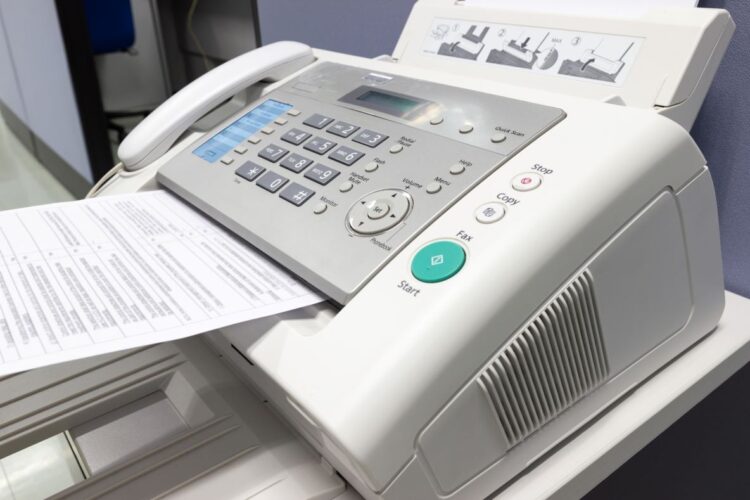
Additional Tips for Faxing Sensitive Documents
- Use a cover sheet to identify the document and the recipient.
- Encrypt the document if possible.
- Send the document to a secure fax number.
- Keep the document confidential after it has been faxed.
- Shred the document after it is no longer needed.
By following these tips, any person can help to protect the confidentiality of sensitive documents. However, the easiest way to secure faxes is to use digital technology. This technology eliminates many of the concerns seen when using a conventional fax machine.
The importance of confidentiality in faxing sensitive documents cannot be overstated. Despite the technological advancements in communication, faxing remains a secure and reliable method for transmitting confidential information.
Understanding the security risks involved, implementing appropriate measures to prevent unauthorized access and data breaches, and adhering to legal and ethical obligations are all crucial steps in safeguarding sensitive information. By prioritizing confidentiality in faxing, individuals and organizations can maintain trust, protect valuable information, and demonstrate their commitment to privacy and security in today’s digital world.

